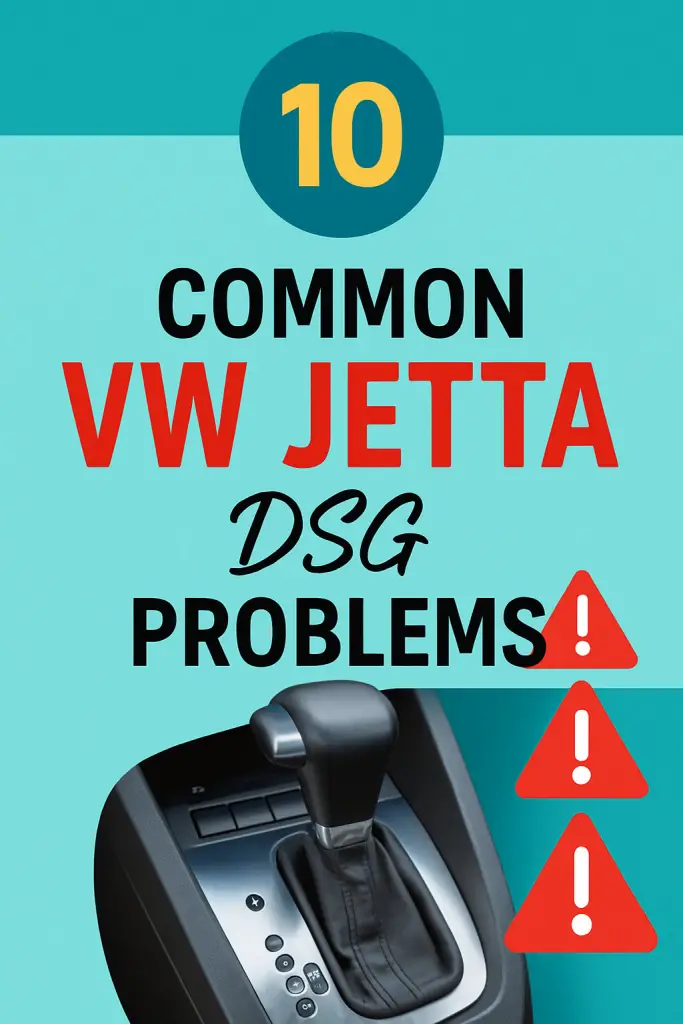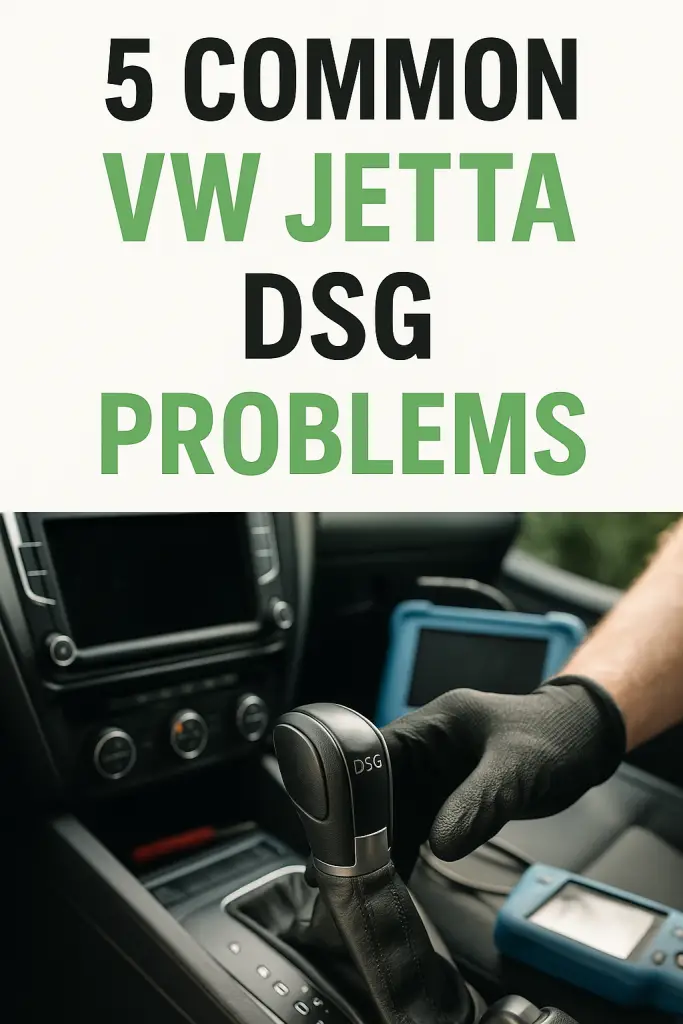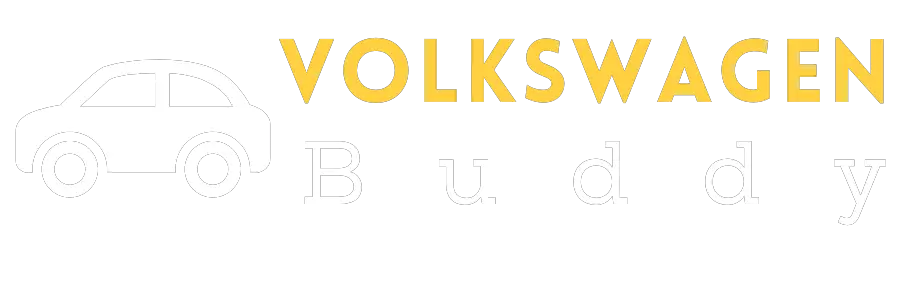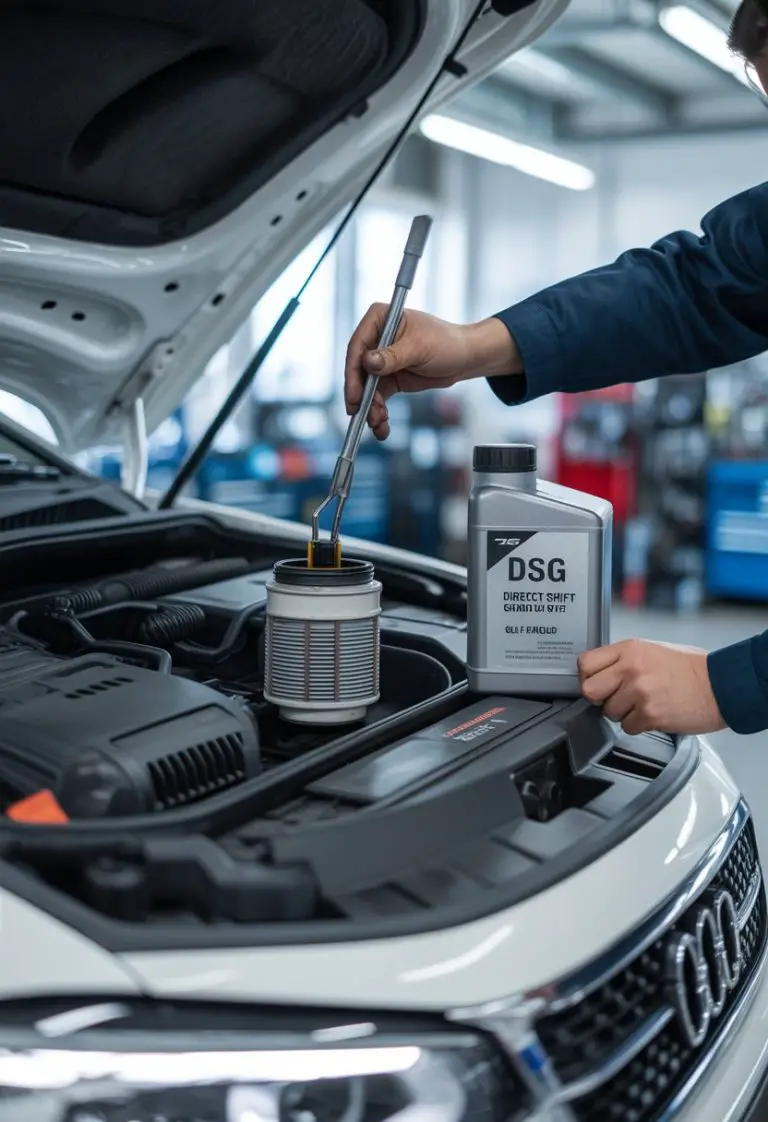VW Jetta DSG Transmission Problems: What You Need to Know

So… Your Jetta’s DSG is Acting Up?
Let me guess—you were enjoying those lightning-fast shifts in your VW Jetta, feeling like a race car driver every time the gear clicked instantly. And then, one day, it started to jerk, hesitate, or throw up a flashing gear light that made you think, “Oh great, here comes the bill.”
Yeah, I’ve been there. My old Jetta GLI’s DSG decided to have a mid-life crisis at 75,000 miles. One day, it was smooth and confident; the next, it acted like it had commitment issues every time I hit the accelerator.
If you own a VW Jetta with a DSG (Direct-Shift Gearbox), you already know it’s an amazing piece of tech—until it isn’t. Today, we’re going to talk about the most common DSG transmission problems in the Jetta, what causes them, how to spot them early, and what you can actually do about them (without selling a kidney).
What Makes the VW Jetta DSG Special? (And Why It’s Also a Diva)

Before we bash it for its problems, let’s give credit where credit is due.
The DSG is Volkswagen’s dual-clutch transmission that combines the best of both worlds:
- Automatic convenience – No clutch pedal.
- Manual performance – Super quick, precise shifts.
The Jetta’s DSG uses two clutches—one for odd gears, one for even gears. While you’re in one gear, the next is already pre-selected, meaning shifts happen in about 0.2 seconds. Sounds awesome, right?
The catch? This speed and smoothness come from complex electronics and hydraulics. And you know what that means—more stuff that can go wrong.
Common VW Jetta DSG Transmission Problems
Here’s the good stuff—the list every Jetta DSG owner should memorize.
1. Shuddering and Jerky Starts
Ever feel your car vibrate or lurch forward when you’re pulling away from a stop? Yeah, that’s shuddering, and it’s a classic DSG symptom.
Possible causes:
- Worn clutch packs – They’re not cheap.
- Dirty DSG fluid – Old fluid messes with hydraulic pressure.
Pro tip: If it feels like your Jetta’s having a caffeine overdose every time you hit the gas, get it checked before the clutches completely wear out.
2. Gear Engagement Delay
You shift into D or R… and nothing happens for a second or two. Awkward, right? Especially when you’re trying to reverse out of a tight parking spot with traffic waiting.
Possible causes:
- Faulty mechatronic unit (DSG’s brain).
- Low hydraulic pressure.
This delay might be minor at first, but if ignored, it can leave you stranded.
3. Flashing Gear Indicator
You know that little gear icon on your dash? If it starts flashing, your Jetta is basically screaming, “Help me!”
Possible causes:
- Transmission Control Module (TCM) failure.
- Electrical faults in the mechatronic system.
Sometimes, the car will even go into limp mode, meaning it refuses to shift past certain gears. Fun times.
4. Unwanted Downshifts or Rough Upshifts
You’re cruising smoothly, then suddenly the car decides to downshift aggressively—or it upshifts with all the grace of a toddler throwing a tantrum.
Possible causes:
- Faulty sensors misreading driving conditions.
- Software glitches in the TCM.
This can make the car feel unpredictable and ruin the whole DSG driving experience.
5. Overheating in Heavy Traffic
If you’ve been stuck in bumper-to-bumper traffic and noticed a warning light for transmission overheating, your DSG is telling you it hates stop-and-go.
Possible causes:
- Excessive clutch slipping while creeping.
- Hot weather + constant idling.
FYI: DSGs aren’t big fans of crawling for hours. If possible, keep your Jetta moving or give it breaks.
Why Do VW Jetta DSG Problems Happen?
The DSG is a high-performance system crammed into a daily driver. That means it’s more sensitive to abuse, missed maintenance, and certain driving conditions.
Top causes of DSG issues in the Jetta:
- Neglected fluid changes – VW recommends changes every 40,000 miles. Skip it, and you’re asking for trouble.
- Stop-and-go traffic – Overheats the system and wears clutches faster.
- Aggressive driving – Fun, but it stresses components.
- Electronics – One bad sensor can throw the whole transmission off.
How to Spot DSG Trouble Early
Catching problems early can save you thousands. Here’s what to look out for:
- Weird noises when shifting (clunks, grinding).
- Jerky acceleration from a stop.
- Random gear changes or hesitation.
- Flashing gear light or check engine light.
- Burning smell after heavy driving.
If any of these show up, don’t wait. A quick diagnostic scan can tell you exactly what’s wrong.
Maintenance Tips to Keep Your Jetta’s DSG Happy
Think of the DSG like a high-maintenance friend—it’s awesome to hang out with, but you have to put in the effort.
Do this, and your DSG will thank you:
- Change the fluid every 40,000 miles – No excuses.
- Avoid riding the brake and accelerator at the same time in traffic.
- Let it warm up before spirited driving.
- Use manual mode in heavy traffic to reduce clutch slipping.
- Get software updates from VW when available.
How Much Do DSG Repairs Cost? (Brace Yourself)
The bad news? DSG repairs can be expensive. The good news? Catching problems early helps avoid the worst-case bills.
Typical DSG repair costs for the Jetta:
- Clutch pack replacement: $1,200–$2,000
- Mechatronic unit: $1,500–$2,500
- TCM replacement: $800–$1,200
- Full transmission replacement: $4,000+ (ouch)
Pro tip: If your Jetta is still under VW’s extended DSG warranty (they’ve had recalls), you might get repairs covered.
My Personal DSG Horror Story (and Why I Still Love It)
A few years back, my Jetta started hesitating at low speeds. I ignored it, thinking it was “just a DSG quirk.” Two weeks later, it refused to shift into 3rd. The shop diagnosed a failing mechatronic unit—$2,000 later, it was good as new.
Was I annoyed? Absolutely. Do I still think DSG is brilliant when it works? You bet. That’s the thing with DSG—it’s a love/hate relationship.
Is the VW Jetta DSG Worth It Despite the Problems?
Here’s my honest take: If you love performance, quick shifts, and a sporty feel, DSG is worth it—if you commit to proper maintenance.
If you hate unexpected repair bills and mostly drive in stop-and-go traffic, a traditional automatic might be less stressful.
But when it works? DSG makes the Jetta feel like a completely different car.
Conclusion: Love It or Hate It, Respect the DSG
The VW Jetta DSG transmission is a masterpiece of engineering and a diva all at once. It delivers thrilling performance, smooth shifts, and great fuel efficiency—until it doesn’t.
If you own one, stay on top of maintenance, learn the early warning signs, and budget for repairs just in case. Do that, and you’ll keep enjoying those lightning-fast shifts without the drama.

![7E9 Engine Code Volkswagen [Find Out]](https://volkswagenbuddy.com/wp-content/uploads/2024/05/7e9-engine-code-volkswagen-find-out_4166-768x531.jpg)




![Volkswagen Check Engine Codes [Explained]](https://volkswagenbuddy.com/wp-content/uploads/2024/05/volkswagen-check-engine-codes-explained_4157-768x531.jpg)